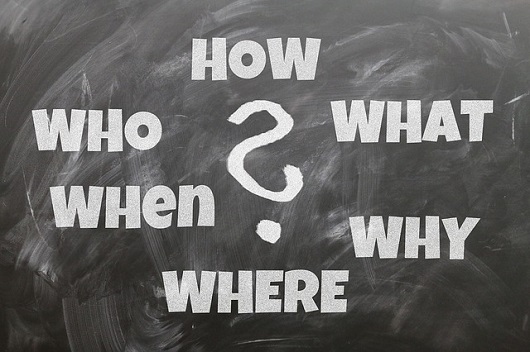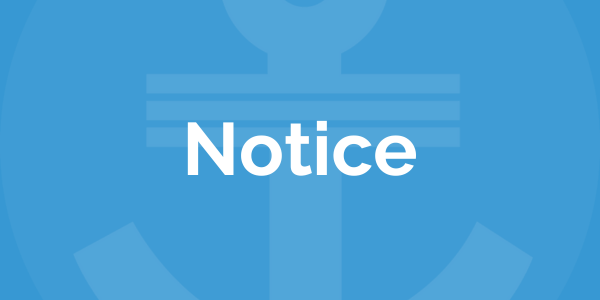The Thing About Auditing - Part 1 (Communicating)
 Karen MacKenzie
·
3 minute read
Karen MacKenzie
·
3 minute read
When I was reflecting recently on the 'pinball wizardry' of auditing, I discovered that I am in the habit of starting sentences with this phrase, ‘the thing about auditing….’
I use it when I’m auditing, I use it when I’m training auditors, and I use it when I’m working as a consultant implementing ISO management systems.
I even use it when I’m talking generally to my friends and family about my work! So what is the thing about auditing? Well, there are several 'things' – which is why this is part 1.
Ask a stupid question...
The thing about auditing is that it should be efficient and effective. Likewise, it should be a process for the measurement of efficiency and effectiveness of other processes. And to achieve these outcomes, a good auditor depends on skilled and clever communication. The effectiveness of communication is in what is received not in what is sent, and the responsibility to make that so lies with the auditor. I may create the most gorgeous soundbites and ‘intelligent sounding’ questions, but if they do not reach the auditee as understandable then I cannot collect sufficient, valid, reliable evidence; and if I can’t do that – what am I doing?
Anybody can go out and talk to an auditee, but an auditor is required and charged with gaining sufficient, valid, verifiable evidence on which to exert their reasoned judgement to draw conclusions on the degree of conformity with audit criteria. Questioning and explaining have to be high-level skills – the quality of the question you ask determines the quality of the response you get back. The sensitivity and articulation involved in explaining either what evidence you are looking for or what the Standard or audit criteria require is crucial in getting accurate information back. It's also key to managing the insecurities of other people who may, because of previous experiences, feel uncomfortable during an audit, and again the responsibility for this lies with the auditor.
My pinball analogy
I always imagine a good-quality question as the ball in a pinball machine, and the auditor is the lever firing it out there. I want questions that hit lots of parts of the Standard or other audit criteria – ‘lighting them up’ one after the other so that I’m going –"yes, evidence for 5.5.1, 5.5.3, 6.1,.6.2.2, 7.1* etc. All gained with one question! Good job!"

Also, it’s important for auditors to self-evaluate their questioning techniques as they audit and abandon the ones that bring no valuable evidence, and develop the ones that take you to solid evidence sources. I believe we also need to develop different genres of questions – information-eliciting questions and problem-solving questions. For example:-
- What happens if…? (Information eliciting)
- What would have to happen for you to change how this works? (Problem-solving)
All of this is good and well and focuses on the auditor, however, another aspect of this process is that there are always (at least) two people involved in it, so a high degree of awareness about how other people receive and process information is really important for auditors. I doubt there are many of us who have not been involved in a conversation where the phrases "that’s not what I meant" or "oh I totally misunderstood you" have come up. This would be a dangerous and costly place for an auditor to be found in and so it behoves us to work hard at developing these skills of recognising how others process information.
How does your mind work?
There’s the obvious visual / audio / kinaesthetic. I’m very visual and if you listen to me for a few minutes when I’m talking generally you’ll pick that up. I say things like, "I see that"; "that’s clear to me - it’s very transparent". I use visual words because I make pictures in my head. What helped me develop and expand that was studying Howard Gardiners’ Multiple Intelligences. Howard Gardiner is Hobbs Professor of Cognition and Education at the Harvard Graduate School of Education at Harvard.
Developing these oral skills also impacts on the written notes I take as an auditor, and helps me take clearer, more relevant notes. I then edit my notes on an ongoing basis to determine when I have sufficient verifiable evidence and when I need to keep collecting so that it's an iterative developmental process.
Summing up
There is a huge moral responsibility on an auditor to bring back honest, fair, reasoned judgement in the form of conclusions on the degree of conformity with audit criteria. This information will be used by organisations at a high level to determine priorities and where investment will be made (training, equipment, premises, marketing etc.), so it has to be as good as it possibly can be and fit with the Management Principle: 'A Factual Approach to Decision Making'. The better the information auditors provide, the better the decisions made at this level.
The responsibility for my ongoing development as an auditor to be the best I can be lies with me. However there are some things organisationally that help with this so look out for 'The thing about auditing - Part 2', on SQMC's 'Insight' column, now.
*Clauses from ISO 9001:2008



